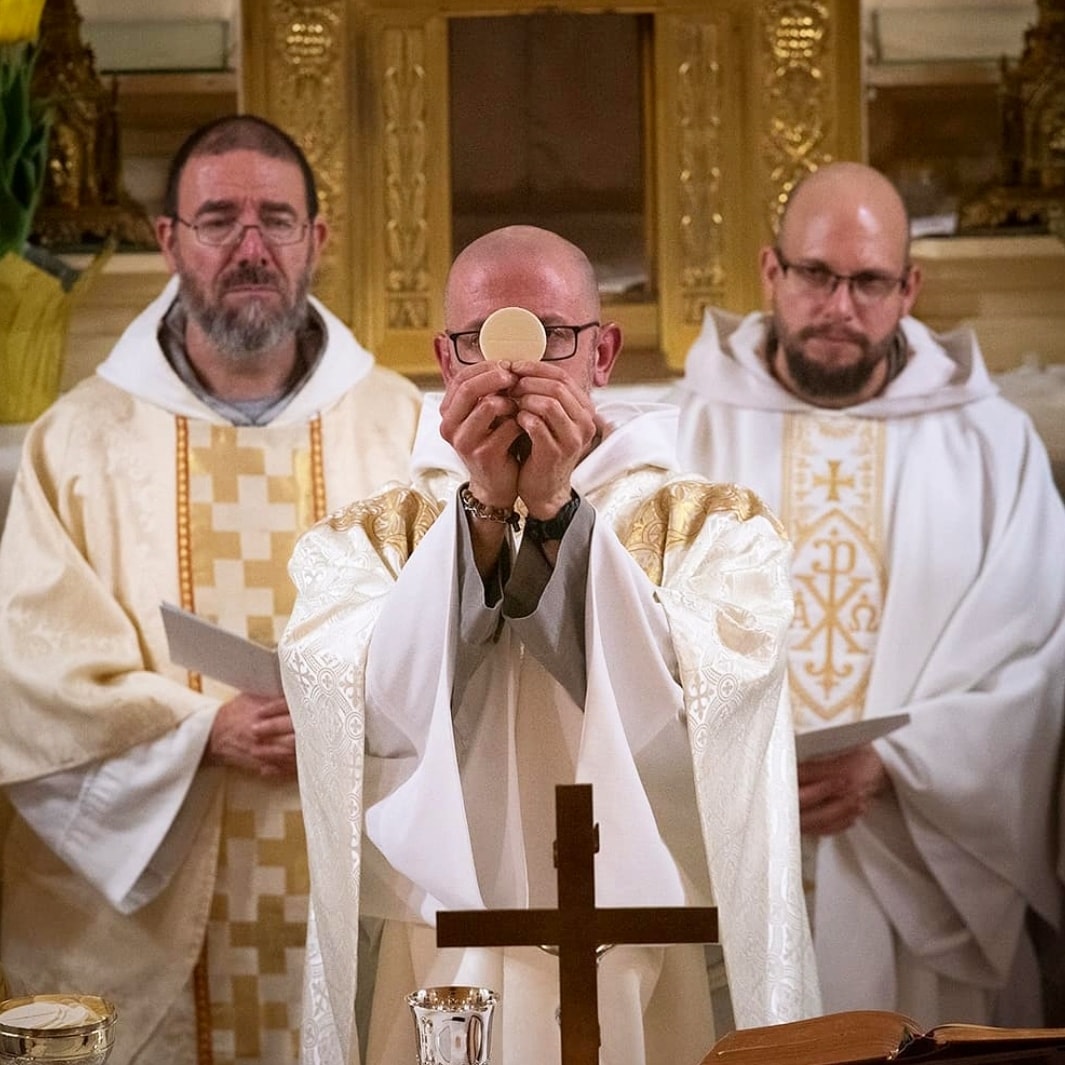
Jn. 6: 41-51
The life story of Servant of God Floripes de Jesús, better known as Lola, is an inspiring epic. She was a Brazilian lay woman born in 1913 in Minas Gerais state, Brazil. When she was 16, she had a tragic accident. She fell down from a tree and her lower half of her body was paralysed. This accident changed the destiny of her life. She lost her need for food, water, and even sleep. She started to receive only the Holy Eucharist as her spiritual and physical food. It continued for sixty years, all the while she was sustained alone by the Holy Eucharist.
Meanwhile, her fame for sanctity was widespread and people from all walks of life flocked to her to seek her prayerful assistance and intercession. When Archbishop Helvécio Gomes de Oliveira of Mariana asked Lola to stop receiving visitors and to ‘live a life of silence and privacy,’ she obeyed him joyfully and willingly. All the same, the Bishop gave her permission to expose the Blessed Sacrament in her room and the Holy Eucharist was celebrated in her room once a week. Lay ministers brought the Holy Eucharist to her every day without fail. She did not use the mattress as a penance. She offered all her sufferings and prayers for the sanctification of priests. She dedicated her heroic witness to spreading devotion to the Sacred Heart of Jesus. She lived a life in total union with the Eucharistic Lord. She used to say often: “Whoever wants to look for me, finds me in the heart of Jesus.” She was called for heavenly reward in 1999. The multitude gathered for her funeral itself testified to her sanctity. She was declared a servant of God by the Holy See in 2005.
We can be sure of various forms of challenges in our life journey. Some challenges really strain us to the extreme that we may think of giving up on God. In the first reading, we come across a similar situation with the prophet Elijah. He becomes the instrumental cause of all the priests of Baal. It invited the wrath of Queen Jezebel upon him. As a result, he had to run for his life. During this flight, he was frustrated so much that he wanted to give up on God and himself. Anyhow, the angel of the Lord fed him twice with bread and water. Hence, he was restored with strength to travel day and night for forty days to reach Mount Horeb, the mountain of the Lord.
This experience of Elijah prefigures the self-giving love of Jesus in the Eucharist. Jesus says: “Whoever eats this bread will live forever; and the bread that I will give for the life of the world is my flesh.” (Jn. 6:51) Why did Jesus give himself in the Sacrament of the Holy Eucharist? I think the second reading of the day, St. Paul’s letter to the Ephesians, gives an answer to the purpose of the sacrament of the Holy Eucharist. Paul exhorts the Ephesians to walk in love by being kind, tender-hearted, forgiving one another. Do you think it is easy to live these exhortations of St. Paul in our day to-day life? All of us invariably struggle to live these ideals and fail often because we all carry certain brokenness created because of our failures due to our sinful inclinations. In the book of Genesis, we read that Adam and Eve lived a life of communion with God. But when they violated the commandment of God, they ran and hid from the sight of God because sin broke their relationship with God. The author of Genesis wanted to express humanity’s struggle with the reality of sin through the story of Adam and Eve.
There is only one human who lived up to the perfections or ideals of human life-Jesus. Scripture says that he was moved with compassion for humanity. His compassion is defined by his relationship with God, his fellow men, and one’s own self. The Holy Eucharist is the supreme expression of his compassionate love. He recognized our struggle with the reality of sin, its fragility and brokenness. Consequently, he decided to become part of every human by being the Bread of Life. All the other foods that we consume become part of our being, but when we receive the Holy Eucharist, we become part of his being. Thus, we grow in our human ideals by growing towards the person of Christ.
As we pass through this pandemic, we find ample reasons to sink into the pool of disappointment and frustration. Most of us want to question his existence. Where is God in our moments of suffering and tribulations? Yes, he is suffering with us and in us by being part of us. Like so, he fills our lives with rays of hope to encounter these days of darkness with the light of his gospel. Let us continue our journey of life with hope and courage that he is with us…